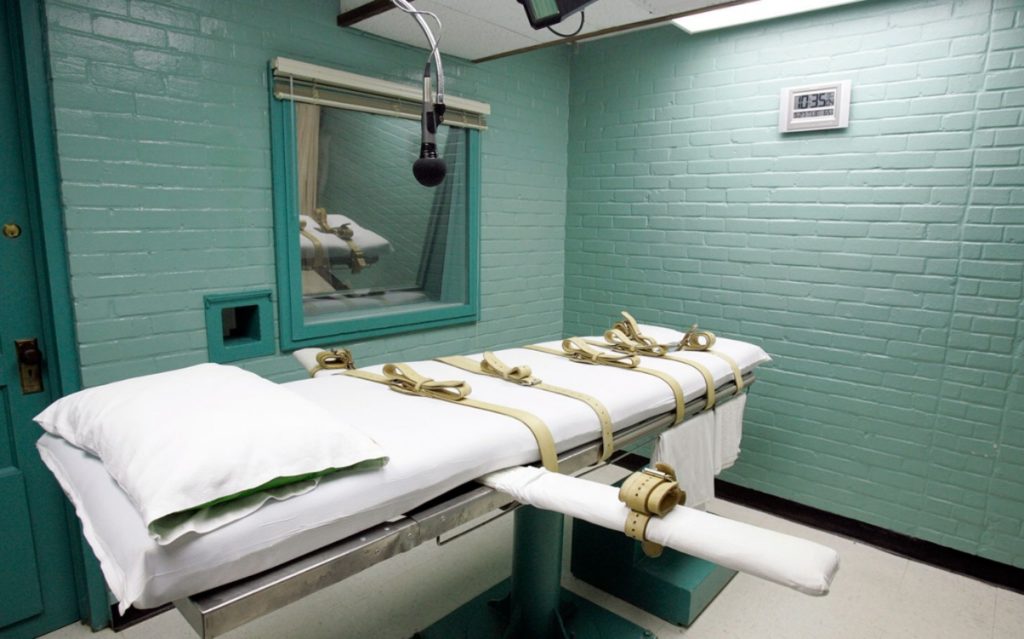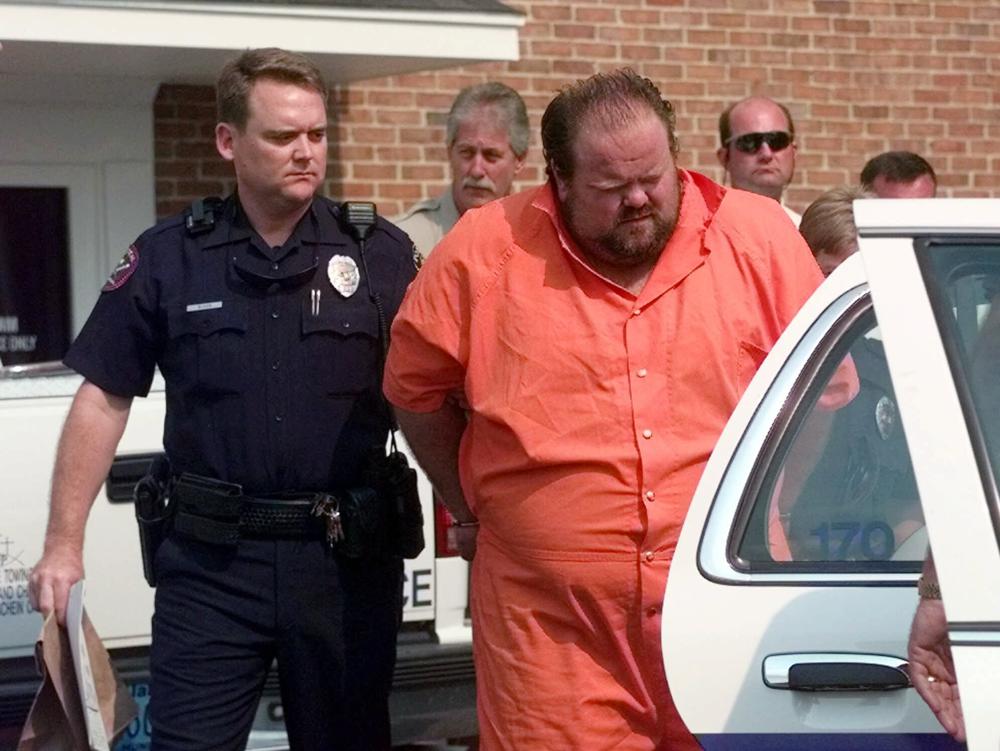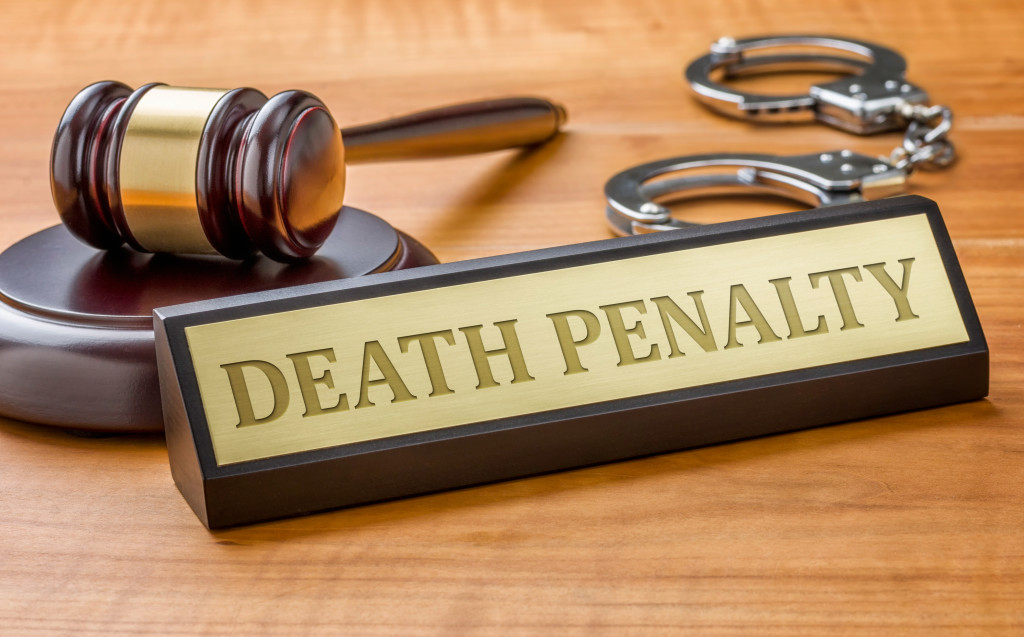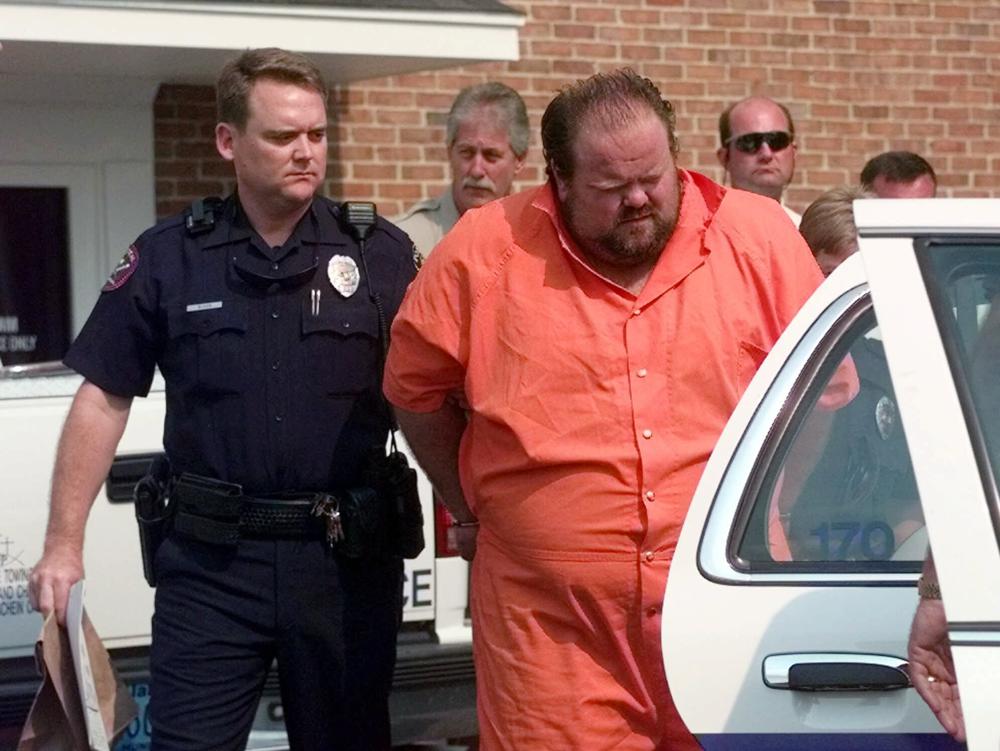Faith leaders urge independent review of Alabama executions

More than 170 pastors and other faith leaders on Tuesday urged Alabama Gov. Kay Ivey to authorize an independent review of execution procedures, as Oklahoma and Tennessee did after a series of failed lethal injections in those states. The group applauded Ivey for taking the “bold and necessary step” of ordering a review of Alabama execution procedures following problems locating intravenous lines during three lethal injections but said that review should be done by those outside the state prison system. Ivey, in November, ordered the Alabama Department of Corrections, which carries out executions, to undertake the review. “Given the gravity of what has transpired, we respectfully request a comprehensive, independent, and external review of Alabama’s death penalty procedures,” they wrote in a letter delivered to Ivey’s Alabama Capitol Office on Tuesday. The faith leaders said the review should be conducted openly — and by a person or group other than the Alabama Department of Corrections. “The fact of the matter is that an agency that has failed repeatedly to get its own house in order cannot be trusted to privately conduct an investigation into problems it is causing,” they wrote. The group cited the example of Tennessee Gov. Bill Lee, who authorized a state review after acknowledging that the state failed to ensure its lethal injection drugs were properly tested. A former U.S. attorney conducted the review. It found Tennessee had not complied with its own lethal injection process ever since it was revised in 2018, resulting in several executions that were conducted without proper testing of the drugs used. A review was also conducted in Oklahoma after the 2014 execution of Clayton Lockett. After the first drug was administered, Lockett struggled on a gurney for 43 minutes before he was declared dead. The review was conducted by a separate state agency from the prison system. It was later learned that members of the execution team had improperly inserted an IV into a vein in Lockett’s groin. The independent Oklahoma Death Penalty Review Commission also scrutinized state procedures. Ivey cited concerns for the victims and their families in ordering the review in Alabama. “For the sake of the victims and their families, we’ve got to get this right,” Ivey said. Carrying out an execution is the state’s responsibility to uphold the law and to ensure justice, Ivey spokesperson Gina Maiola wrote in a statement. “This is a responsibility Governor Ivey takes very seriously, and as she has made very clear along the way, this will review remain transparent as is appropriate while also protecting sensitive information,” she continued. The Alabama review has so far yielded changes to make it easier to carry out death sentences. At Ivey’s request, the Alabama Supreme Court gave the state a longer amount of time to carry out executions by allowing death warrants authorizing an execution to last for more than 24 hours. Ivey announced the pause on executions after a third failed lethal injection in the state. The state called off the November execution of Kenneth Eugene Smith after failing to get an intravenous line connected within the 100-minute window between when courts cleared the way for it to begin and the death warrant’s midnight deadline expired. In September, the state called off the scheduled execution of Alan Miller because of difficulty accessing his veins. Alabama, in 2018 called off the execution of Doyle Hamm because of problems getting the intravenous line connected. Hamm had damaged veins because of lymphoma, hepatitis, and past drug use, his lawyer said. The state completed an execution in July, but only after a three-hour delay caused at least partly by the same problem with starting an IV line. Republished with the permission of The Associated Press.
Alabama fails to complete lethal injection for 3rd time

Alabama’s string of troubled lethal injections, which worsened late Thursday as prison workers aborted another execution because of a problem with intravenous lines, is unprecedented nationally, a group that tracks capital punishment said Friday. The uncompleted execution of Kenneth Eugene Smith was the state’s second such instance of being unable to kill an inmate in the past two months and its third since 2018. The state completed an execution in July, but only after a three-hour delay caused at least partly by the same problem with starting an IV line. A leader at the Death Penalty Information Center, an anti-death penalty group with a large database on executions, said no state other than Alabama has had to halt an execution in progress since 2017, when Ohio halted Alva Campbell’s lethal injection because workers couldn’t find a vein. According to Ngozi Ndulue, deputy director of the Washington-based group, the only other lethal injection stopped before an inmate died also was in Ohio in 2009. “So Alabama has more aborted lethal injections in the past few years than the rest of the country has overall,” she said. Something has obviously gone wrong with the state’s execution procedure, Ndulue said. “I think Alabama clearly has some explaining to do, but also some reflection to do about what is going wrong in its execution process,” she said. “The question is whether Alabama is going to take that seriously.” The Alabama Department of Corrections disputed that the cancellation was a reflection of problems. In a statement, it blamed the late-running court action for the cancellation because prison officials “had a short timeframe to complete its protocol.” Prison officials said they called off Smith’s execution for the night after they were unable to get the lethal injection underway within the 100-minute window between the courts clearing the way for it to begin and a midnight deadline when the death warrant expired for the day. The U.S. Supreme Court cleared the way for Smith’s execution when at about 10:20 p.m., it lifted a stay issued earlier in the evening by the 11th U.S Circuit Court of Appeals. But the state decided about an hour later that the lethal injection would not happen that evening. “We have no concerns about the state’s ability to carry out future lethal injection procedures,” the Alabama Department of Corrections said in an emailed statement. “The department will continue to review its processes, as it routinely does following each execution, to identify areas of improvement.” Alabama Gov. Kay Ivey also blamed Smith’s last-minute appeals as the reason “justice could not be carried out” U.S District Judge R. Austin Huffaker Jr. on Friday granted a request from Smith’s lawyers to visit with Smith and take photographs of his body. He also ordered the state to preserve notes and other materials related to what happened in the failed execution. Smith’s attorneys said they believe he may have been strapped to a gurney for four hours even though his final appeals were still underway. “Mr. Smith no doubt has injuries from the attempted execution — and certainly physical and testimonial evidence that needs to be preserved — that can and should be photographed and/or filmed,” lawyers for Smith wrote. Smith, who was scheduled to be put to death for the murder-for-hire slaying of a preacher’s wife in 1988, was returned to death row at Holman Prison after surviving the attempt, a prison official said. His lawyers declined to comment Friday morning. Corrections Commissioner John Hamm said prison staff tried for about an hour to get the two required intravenous lines connected to Smith, 57. Hamm said they established one line but were unsuccessful with a second line, which is required under the state’s protocol as a backup, after trying several locations on Smith’s body. Officials then tried a central line, which involves a catheter placed into a large vein. “We were not able to have time to complete that, so we called off the execution,” Hamm said. The initial postponement came after Smith’s final appeals focused on problems with IV lines at Alabama’s last two scheduled lethal injections. Because the death warrant expired at midnight, the state must go back to court to seek a new execution date. Advocacy groups and defense lawyers said Alabama’s continued problems show a need for a moratorium to investigate how the death penalty is carried out in the state. “Once again, the state of Alabama has shown that it is not capable of carrying out the present execution protocol without torture,” federal defender John Palombi, who has represented many death row inmates in the state, said via email Prosecutors said Smith was one of two men who were each paid $1,000 to kill Elizabeth Sennett on behalf of her husband, who was deeply in debt and wanted to collect the insurance. The slaying — and the revelations of who was behind it — rocked the small north Alabama community where it happened in Colbert County and inspired a song called “The Fireplace Poker,” by the Southern rock group Drive-By Truckers. John Forrest Parker, the other man convicted in the slaying, was executed in 2010. Alabama has faced scrutiny over its problems at recent lethal injections. In ongoing litigation, lawyers for inmates are seeking information about the qualifications of the execution team members responsible for connecting the lines. In a Thursday hearing in Smith’s case, a federal judge asked the state how long was too long to try to establish a line, noting at least one state gives an hour limit. The execution of Joe Nathan James Jr. in July took several hours to get underway because of problems establishing an IV line, leading Reprieve US Forensic Justice Initiative, an anti-death penalty group, to claim the execution was botched. In September, the state called off the scheduled execution of Alan Miller because of difficulty accessing his veins. Miller said in a court filing that prison staff poked him with needles for more than an hour, and at one point, left him hanging vertically on a gurney before announcing they were
Attorneys: Alan Eugene Miller endured ‘torture’ during execution attempt

An Alabama inmate said prison staff poked him with needles for over an hour as they tried to find a vein during an aborted lethal injection last month. At one point, they left him hanging vertically on a gurney before state officials made the decision to call off the execution. Attorneys for 57-year-old Alan Eugene Miller wrote about his experience during Alabama’s September 22 execution attempt in a court filing made last week. Miller’s attorneys are trying to block the state from attempting a second lethal injection. Two men in scrubs used needles to repeatedly probe Miller’s arms, legs, feet, and hands. At one point, using a cell phone flashlight to help their search for a vein, according to the October 6 court filing. The attorneys called Miller the “only living execution survivor in the United States” and said Alabama subjected Miller “to precisely the unnecessary and wanton infliction of pain that the Eighth Amendment was intended to prohibit.” Alabama has asked the state Supreme Court to set a new execution date for Miller, saying the execution was canceled only because of a time issue as the state faced a midnight deadline to get the lethal injection underway. “Despite this failed execution, the physical and mental torture it inflicted upon Mr. Miller, and the fact that Defendants have now botched three lethal injection executions in just four years, Defendants relentlessly seek to execute Mr. Miller again—presumably by lethal injection,” attorneys for Miller wrote, referencing an execution that was canceled and another that took three hours to get underway. “What then, in Defendants’ view, is a constitutional amount of time to spend stabbing someone with needles in an attempt to kill them?” his attorneys wrote. The 351-pound (159-kilogram) inmate testified in an earlier court hearing that medical workers always have difficulty accessing his veins, and that is why he wanted to be executed by nitrogen hypoxia, a newly approved execution method that the state has yet to try. Miller said he was led into the execution chamber at 10 p.m., about an hour after the U.S. Supreme Court lifted an injunction that had been blocking the lethal injunction, and was strapped to the gurney at about 10:15 p.m. After the two men used needles to probe various parts of his body for a vein, also using a phone flashlight to help, Miller told the men, “he could feel that they were not accessing his veins, but rather stabbing around his veins.” Later, a third man then began slapping his neck in an apparent attempt to look for a vein. The three men in scrubs stopped their probing and left the chamber after there was a loud knock on a death chamber window from the state’s observation room, according to the court filing. A prison officer then raised the gurney to a vertical position. Miller said the wall clock read 11:40 p.m., and he estimated that he hung there for about 20 minutes before he was let down and told that his execution was canceled for the evening. “Mr. Miller felt nauseous, disoriented, confused, and fearful about whether he was about to be killed, and was deeply disturbed by his view of state employees silently staring at him from the observation room while he was hanging vertically from the gurney. Blood was leaking from some of Mr. Miller’s wounds,” the motion stated. Miller was sentenced to death after being convicted of a 1999 workplace rampage in which he killed Terry Jarvis, Lee Holdbrooks, and Scott Yancy. “Due to the lateness of the hour, the Alabama Department of Corrections was limited in the number of attempts to gain intravenous access it could make. ADOC made the decision to halt its efforts to obtain IV access at approximately 11:30 p.m., resulting in the expiration of the court’s execution warrant,” the state attorney general’s office wrote in the request for a new date. This is at least the third time Alabama has acknowledged problems with vein access during a lethal injection. The state’s July execution of Joe Nathan James took more than three hours to get underway. Alabama called off the 2018 execution of Doyle Hamm after being unable to establish an intravenous line. Republished with the permission of The Associated Press.
Alabama seeks new execution date for Alan Miller

Alabama is asking a court to swiftly set a new execution date for an inmate who had his lethal injection called off last month after multiple failed attempts to connect an intravenous line to the man’s veins. The Alabama attorney general’s office, in the Tuesday court filing, asked the Alabama Supreme Court to set a new execution date for Alan Eugene Miller. The state did not give a timeframe but asked the justices to take the matter up before deciding a pending execution date request involving another inmate. The Alabama Department of Corrections attempted to put Miller to death on September 22, but officials called off the lethal injection after the execution team was unable to connect the intravenous line. The state faced a midnight deadline to get the execution underway before the death warrant expired. Miller, 57, was sentenced to death after being convicted of a 1999 workplace rampage in which he killed Terry Jarvis, Lee Holdbrooks, and Scott Yancy. Miller’s attorneys are expected to fight the effort to set a new execution date. U.S. District Judge R. Austin Huffaker Jr., at the request of Miller’s attorneys, ordered Alabama to preserve notes and medical materials from the failed execution attempt. Court documents have not disclosed exactly how long the state tried to connect an IV line to Miller. However, a lawyer for the prison system told Huffaker that there had been multiple attempts in the approximately 2.5 hours that elapsed between the U.S. Supreme Court clearing the way for the execution shortly after 9 p.m. and the state calling it off at about 11:30 p.m. “Due to the lateness of the hour, the Alabama Department of Corrections was limited in the number of attempts to gain intravenous access it could make. ADOC made the decision to halt its efforts to obtain IV access at approximately 11:30 p.m., resulting in the expiration of the court’s execution warrant,” the state attorney general’s office wrote in the request for a new date. This is at least the third time Alabama has acknowledged problems with venous access during a lethal injection. The state’s July execution of Joe Nathan James took more than three hours to get underway. Alabama called off the 2018 execution of Doyle Hamm after being unable to establish an intravenous line. Republished with the permission of The Associated Press.
Judge: State must preserve evidence from halted execution

A federal judge on Friday ordered Alabama to preserve records and medical supplies associated with a lethal injection attempt after the prison system acknowledged multiple attempts to access the inmate’s veins before calling off the execution. U.S. District Judge R. Austin Huffaker Jr. issued the order at the request of the inmate’s lawyers who are trying to gather more information about what happened during Alabama’s attempt to execute Alan Miller, 57. Miller was sentenced to death after being convicted of a 1999 workplace rampage in which he killed Terry Jarvis, Lee Holdbrooks, and Scott Yancy. The U.S. Supreme Court cleared the way for the execution shortly after 9 p.m. Thursday and state officials said they determined at about 11:30 p.m. that the could not start the execution by a midnight deadline. Huffaker ordered the Alabama Department of Corrections to locate and preserve all evidence related to the attempted execution, including notes, emails, texts, and used medical supplies such as syringes, swabs, scalpels, and IV-lines. He also granted a request from Miller’s attorney to visit him and photograph what they said are, “injuries from the attempted execution.” During a Friday morning hearing conducted by telephone conference, Huffaker asked the state what was going on in the almost 150 minutes that elapsed after the Supreme Court said the execution could proceed. An attorney for the state told the judge the execution team began preparations at about 10 p.m. and made multiple attempts to connect the IV line but she did not indicate exactly how long the state tried. They stopped trying to gain venous access at about 11:20 p.m, she said. Alabama Corrections Commissioner John Hamm told reporters early Friday morning that “accessing the veins was taking a little bit longer than we anticipated” and the state did not have sufficient time to get the execution underway by a midnight deadline. “Due to time constraints resulting from the lateness of the court proceedings, the execution was called off once it was determined the condemned inmate’s veins could not be accessed in accordance with our protocol before the expiration of the death warrant,” Hamm said. This is at least the third time Alabama has acknowledged problems with venous access during a lethal injection. The state’s July execution of Joe Nathan James took more than three hours to get underway. Alabama called off the 2018 execution of Doyle Hamm after being unable to establish an intravenous line. “The Alabama Department of Corrections verges somewhere between malpractice and butchery,” said Bernard Harcourt, a lawyer who represented Doyle Hamm. “What it demonstrates is we really shouldn’t be given this incompetent bureaucrats the power over life and death.” Miller’s execution was called off after a legal fight on whether the state lost Miller’s paperwork requesting a different execution method. When Alabama authorized nitrogen hypoxia as an execution method, state law gave inmates a brief window to request it. Miller testified at an earlier court hearing that he wanted nitrogen because he dislikes needles and medical staff often have trouble finding a blood vessel to draw blood. Republished with the permission of The Associated Press.


